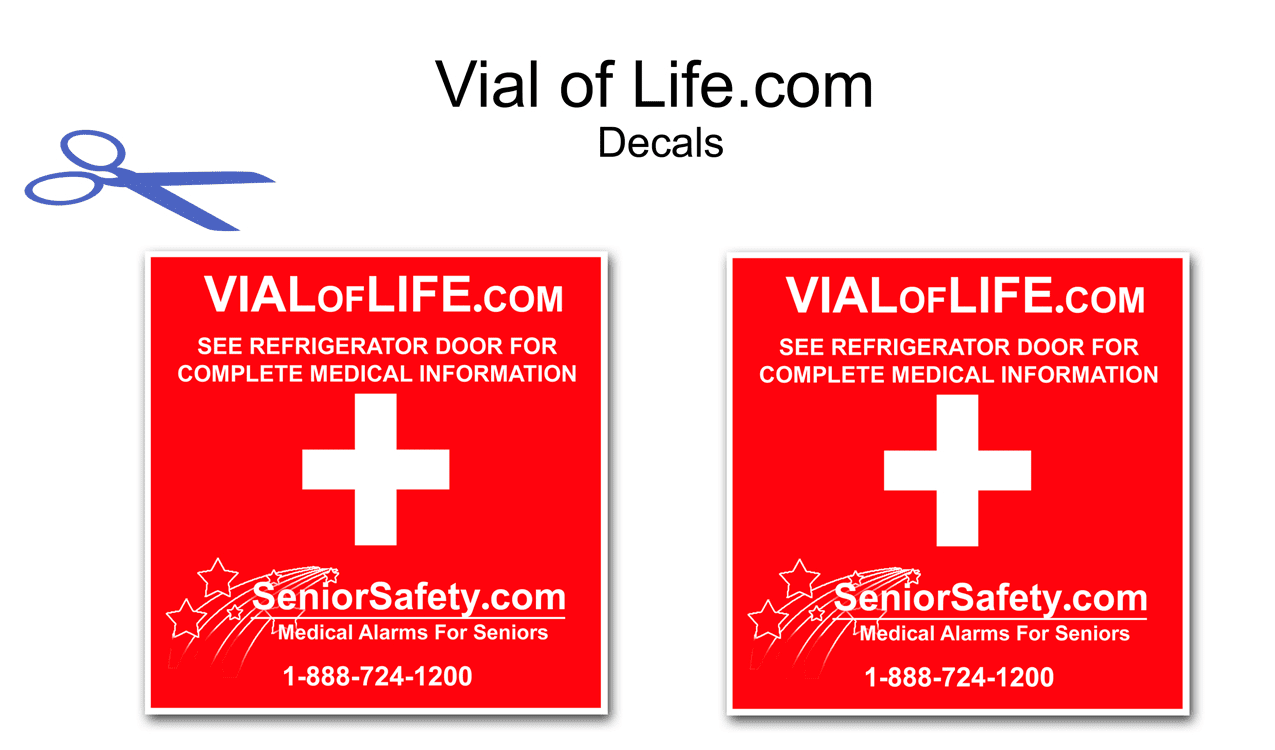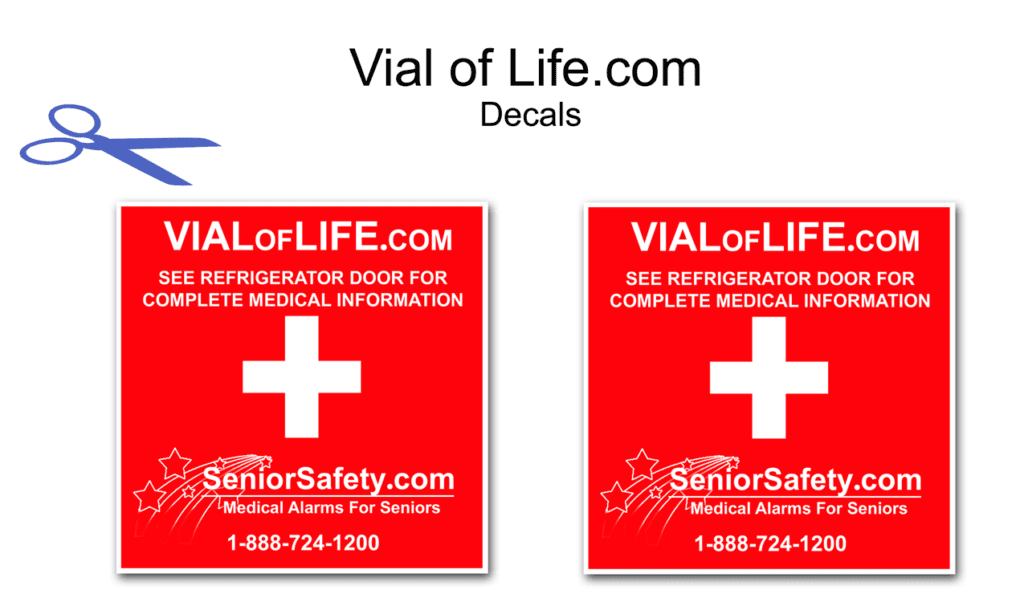
Feel Free to Copy this image and print out your own Vial of Life Decals
The Vial of Life – Preparing For a Medical Emergency
Do you have any allergies? Can you tell me what medication you are on and what you are being treated for? Who is your primary care doctor or specialist? How do we reach them and your family? You might know the answers to these questions, but what about your family? Your friends? An EMT?
A medical emergency is chaotic and scary for anyone, even those able to understand and answer questions about their own health. But an emergency becomes more dangerous when these questions can’t be answered fully, accurately and quickly. As a caregiver, you can help make sure this information is available to emergency responders by creating a Vial of Life for your loved one.
What is the Vial of Life?
The Vial of Life program (www.vialoflife.com) has been around since at least the early 1980s. It has changed and evolved throughout the years to reflect more practical ways for emergency services personnel to access the information. The idea is to have all medical information and care instructions in one container and keep it in one location in the home, the refrigerator. Medical history, emergency contacts, and allergies should be written down and placed into a labeled container or plastic storage bag. A bag can be taped to the refrigerator directly or a sticker can indicate that it is inside in the door. Also, stickers can be placed on front doors or windows of the home. The stickers help alert first responders to the Vial of Life so they can use it to provide care and bring it with the patient to the hospital. An extra copy of the Vial of Life can also be kept in a car’s glove box with stickers on the driver side windshield. Preprinted forms, stickers and instructions can be obtained online for free.
Why the fridge?
Unlike smartphones, everyone has one and it doesn’t get lost in the couch cushions! This makes it a great, eye level location for emergency personnel to spot. It also reminds caregivers to make updates when they see it. The refrigerator is universally accepted as the best place to keep important medical and contact information. In fact, the New Jersey Office of Emergency Management recommends doing so in preparing for any emergency. Similarly, Mercer County Sheriff’s Office provides refrigerator information cards as part of its Senior Program.
What else should be in the Vial of Life?
You may want to also include documents like a Living Will, Power of Attorney, or Do Not Resuscitate order. Why waste valuable time rummaging through your loved one's desk to find these papers while she’s in the hospital? Keep copies of updated documents in the Vial of Life to ensure there is no delay in getting the care your loved one has requested, and making sure you are fully prepared in the event of an emergency.
Archer Law Office Can Help
For More Information Contact this office (609) 842-9200

